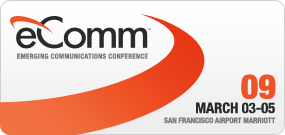 It is becoming increasingly difficult to shove marketing messages down people's throats; and quite honestly, why would you want to do that?
It is becoming increasingly difficult to shove marketing messages down people's throats; and quite honestly, why would you want to do that?I realize this notion is nothing new for those of us that subscribe to the tenets of permission based marketing, but sometimes I get the feeling we are still the minority.
Why not listen to the wants and needs of consumers and use them to create marketing materials that are actually of value, and relevant to our core consumers' lives?
Marketers have been listening to some degree for a while, using small focus groups. Today, social media and search engines make it easier to mine consumer insight; garnering more consumer data than ever before. In a sense, these channels make up the worlds largest listening center (focus group 2.0--to use an annoying moniker). We have the ability to listen to consumers like never before; so why are so many marketers not adopting these new ways of creating consumer driven marketing product? Is it inability, lack of awareness or is it just good old fashioned laziness; who knows.
Anyhow, in these troubled times (take a drink) marketers need to focus more on relevance than ever before; and that is one of the focuses of the video series produced by Paul Chaney and crew entitled; Nine Ways to Maximize Your Marketing Dollars During the Recession. In the video below I (and others, of course) talk about what I refer to as consumer influenced content.
While there are nine videos available, I am only featuring the one that I am in, because I am an egomaniac :) (believe what you will).
I hope you enjoy this video. Go check out the rest of them; there is gold in dem der hills!
Related articles by Zemanta
- The only 2 questions an SMB will ask about Social Media (socialmediatoday.com)
- Why Your Community-Building and Social Media Efforts Aren't Working... (socialmediatoday.com)
- Can't Touch These Tips: Wise Marketing Words from MC Hammer (hubspot.com)
- Sociology and Marketing (socialhallucinations.com)
![Reblog this post [with Zemanta]](http://img.zemanta.com/reblog_b.png?x-id=935d9100-edfb-4ce1-a332-25c3eaba8f04)




![Reblog this post [with Zemanta]](http://img.zemanta.com/reblog_b.png?x-id=2d1be3bd-c208-4716-8b87-f50b1deb1acb)
![Reblog this post [with Zemanta]](http://img.zemanta.com/reblog_b.png?x-id=97471868-8bc6-4c9c-876c-7224a519e812)

![Reblog this post [with Zemanta]](http://img.zemanta.com/reblog_b.png?x-id=3d239ece-3e95-4b0a-bc17-4e5bd1fcaec3)


![Reblog this post [with Zemanta]](http://img.zemanta.com/reblog_b.png?x-id=50d8902d-66a2-4a94-baf6-84921fd6ccb0)
![Reblog this post [with Zemanta]](http://img.zemanta.com/reblog_b.png?x-id=9711e43d-70a2-4693-b91a-b0e6fc6fa58f)

![Reblog this post [with Zemanta]](http://img.zemanta.com/reblog_b.png?x-id=f3de498c-f45a-4241-abe9-9c1eabb0bd00)

![Reblog this post [with Zemanta]](http://img.zemanta.com/reblog_b.png?x-id=c22bc502-ebad-4b17-bee9-332e647d7d5f)


![Reblog this post [with Zemanta]](http://img.zemanta.com/reblog_b.png?x-id=f9d66f1f-26cd-4b92-b14c-21bb2b6a1696)
![Reblog this post [with Zemanta]](http://img.zemanta.com/reblog_b.png?x-id=0d459515-77c8-4895-921d-07ecbafb0e38)

![Reblog this post [with Zemanta]](http://img.zemanta.com/reblog_b.png?x-id=a0ba696d-4554-456a-976a-4bb86a1e79c5)

![Reblog this post [with Zemanta]](http://img.zemanta.com/reblog_b.png?x-id=9c593f26-54b5-4666-b87e-f934baea496b)


![Reblog this post [with Zemanta]](http://img.zemanta.com/reblog_b.png?x-id=245f9211-2888-481a-a0d7-aae3e0256e51)

![Reblog this post [with Zemanta]](http://img.zemanta.com/reblog_b.png?x-id=1f03b092-0810-4e65-a9a9-d5afa0a8ef2f)
 (sorry you were cut off greg :)
(sorry you were cut off greg :)